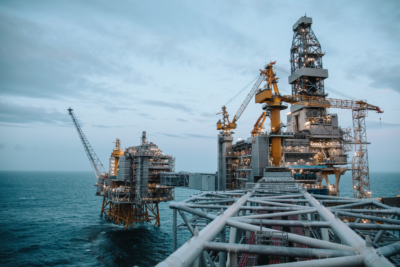The Norwegian government, the oil directorate and the oil industry itself have all confirmed what climate activists feared. They’ll keep searching for and producing offshore oil and gas until either it or demand for it disappears.

That was further confirmed this week, when new Oil & Energy Minister Sylvi Listhaug handed out 69 new exploration licenses to 28 oil companies. It amounted to the third-largest licensing round ever on the Norwegian Continental Shelf.
“Doomsday prophecies from environmental organizations and some political parties about the oil branch’s looming death are exaggerated,” claimed Listhaug, before repeating the same refrain of all her predecessors in the oil minister’s post: “As long as the world needs oil and gas, Norway will be part of producing it.”
Listhaug is known for being provocative, and attacking her opponents head-on. She didn’t disappoint at an annual oil policy conference in Sandefjord, with newspaper Aftenposten reporting how she also repeated the government’s claims that oil and gas fields on the Norwegian Continental Shelf generate lower emissions than they do elsewhere in the world. She claims that if Norway were to cut production, emissions would rise on an international basis.
13 new licenses in the Arctic
The new licenses were spread over the North Sea (33), the Norwegian Sea farther north (23) and the Barents Sea in the Arctic (13). The Arctic exploration generates the most criticism because of how the region is already seeing the most dramatic effects of climate change caused by emissions. Listhaug made a point of cheering on the oil executives she was addressing, claiming that she also hoped they’d find as much oil as what’s now being pumped up on the new Johan Sverdrup field in the North Sea.
Criticism was immediate, not least after Prime Minister Erna Solberg also had stated just last week that her government would reject all proposals to begin a managed phase-out of Norwegian oil and gas. Even though she mounted a new climate offensive in her New Year’s address to the nation, there was little sign of it when Solberg addressed business owners and executives at another conference last week.

She called a managed phase-out “an unusually bad idea,” and opened employer organization’s NHO conference with full support for oil and gas. She admitted that oil production would likely decline in line with development of alternative energy sources, and insisted that economic restructuring away from oil and gas was already underway.
The opposition Greens party (MDG) labeled Solberg’s position as arrogant. “I think it’s sad to see the prime minister start the year by talking down all the climate-engaged people in the country who embrace a managed decline of oil and gas production,” Une Bastholm of the Greens told news bureau NTB.
From ‘fantastic’ to ‘a threat’
Meanwhile, in yet another oil forum, the head of the state oil directorate was also claiming that “all profitable oil will be produced before the fields are shut down.” Ingrid Sølvberg issued a strong defense of the oil and gas business when presenting her agency’s report for last year.
“The oil and gas industry has gone from being described as fantastic to something that’s a huge threat,” Sølvberg said. “At the same time, we see that global oil consumption has doubled in the past 50 years. Most analyses indicate demand will be high for many years ahead.” That means Norway won’t be turning off the pumps any time soon.

Sølvberg could also report that Norway has never had so many oil fields in production (87 at New Year) and that production will continue to rise, largely because of the new Sverdrup field and the Johan Castberg field in the Barents that’s due to start producing in 2022. It has proved to be a major disappointment for the local population around Honningsvåg and the North Cape, however, where officials had expected oil and gas to be brought to land along with all the jobs that would create. Instead, state oil company Equinor has opted for offshore loading and transport.
‘Completely irresponsible’
Listhaug, meanwhile, is also promoting construction of new gas pipelines in the far north. She called a new report from Gassco, which predicted profitable pipelines in the Barents, as “exciting” and hopes the report will make the area even more attractive to oil companies keen on exploration.
“Norway won’t meet its zero-emission goals in 2050 this way,” Lars Haltbrekken, a Member of Parliament for the Socialist Left party, told Aftenposten. He also opposes all the new exploration licenses already handed out this week.
“Listhaug has given us 69 new reasons why this government should not stay in power,” Bastholm of the Greens told NTB, with support from other environmental organizations.
“The Amazon is burning, Australia is burning, Jølster is sliding, storms are raging, we are far into the climate crisis, but time and again, the government rolls over all professional environmental advice and deals out new oil licenses,” stated Therese Hugstmyr Woie of Natur og Ungdom (Nature and Youth) in a press release. Her group called Norway’s oil plans “completely irresponsible” and a “huge letdown for the future.”
newsinenglish.no/Nina Berglund

